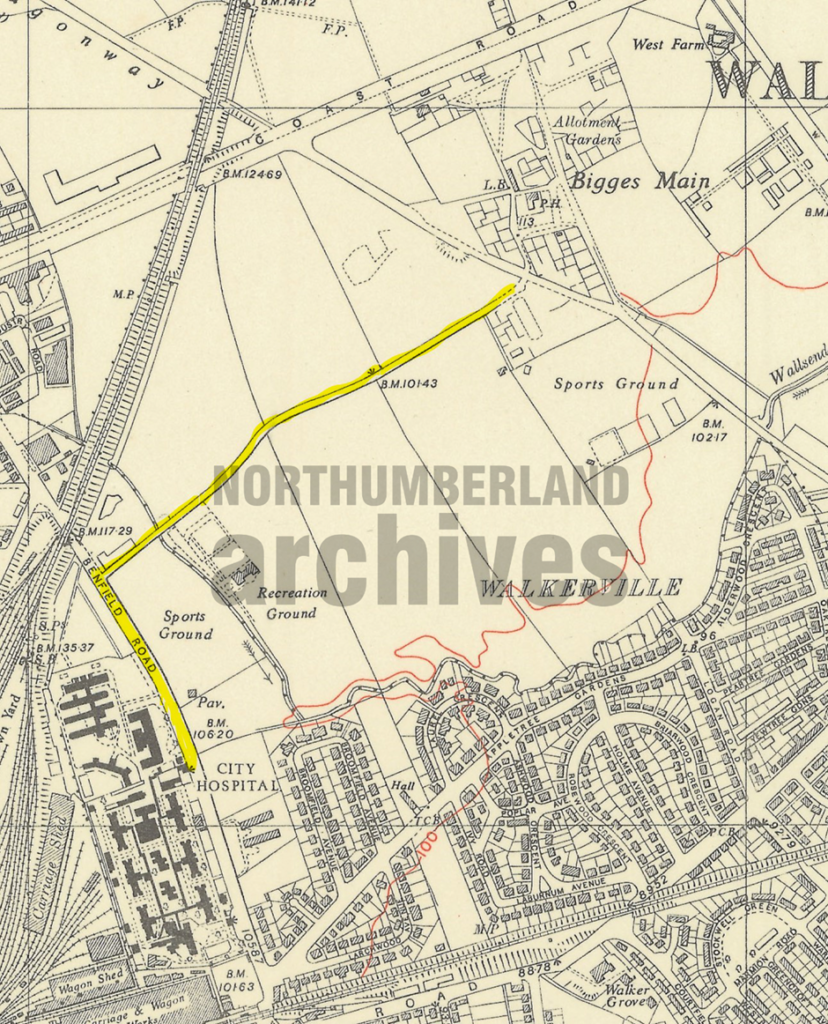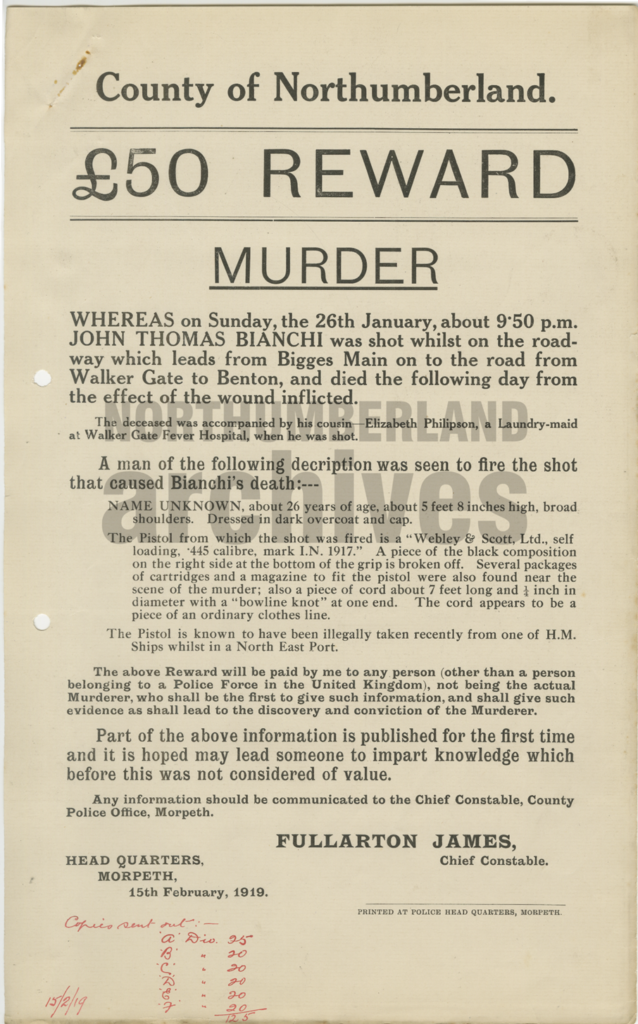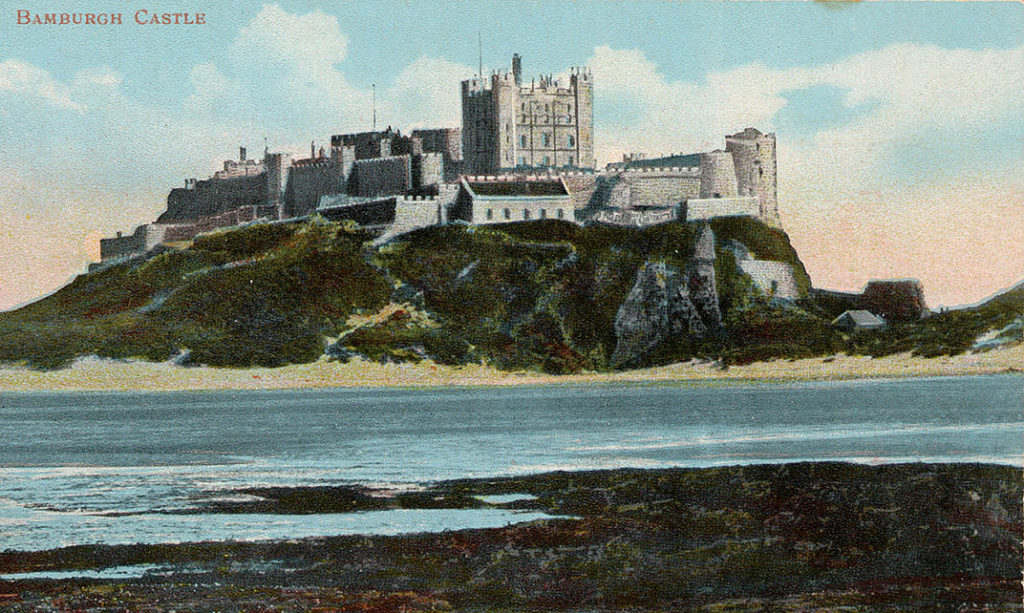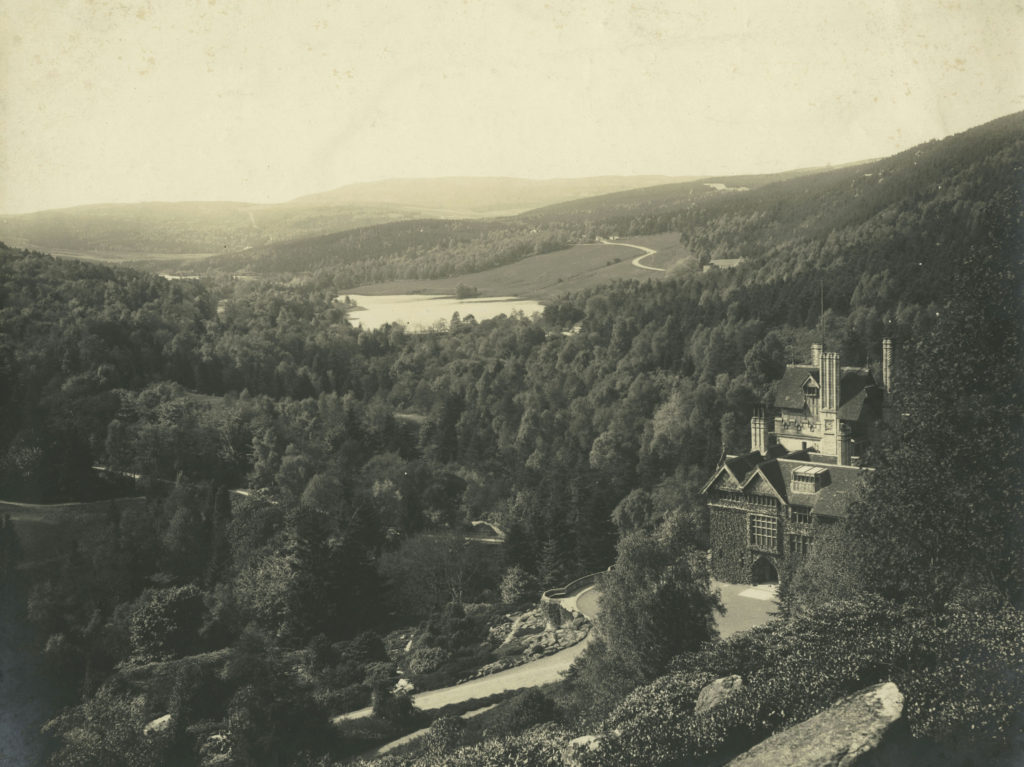Welcome to the fourth and final blog in our series on the unsolved murder of John Thomas Bianchi and the assault on his cousin Elizabeth Philipson in January of 1919. Last time we examined the route the pair were taking on the night of the shooting and the route the murderer took on fleeing the scene. We also looked at some of the witness statements and the £50 reward poster.
This time let’s get to know the Bianchi family a little better. John Thomas Bianchi was the fourth child of Margaret Jane Bianchi, nee Phillipson, and John Thomas Bianchi (Snr). John (Snr) and Margaret would go on to have another three children including a Joseph George.
Joseph George is briefly mentioned in a more contemporary review of the murder case by a newspaper, the Sunday Sun in May 1962. They claim that a younger brother of John’s became a detective-sergeant at Scotland yard. They say that…
“On one occasion he fulfilled a vow by returning to Tyneside and going over the case stage by stage examining every little detail. But he had no better luck than his predecessors.”
Indeed the 1939 register for England and Wales has a Joseph G Bianchi living in West Ham with his occupation listed as “Police Officer Metropolitan Police”. The date of birth given matches other census information for John’s brother. So perhaps we can assume that this is the brother the newspaper was referring to. Despite his brother’s efforts the killer remained at large.
The police file has within it investigations into Elizabeth’s background, who she was friends with and what people thought of her. But as we know this line of enquiry did not produce any firm leads. But curiously they do not appear to have investigated John’s background, who his friends were and whether anyone could have meant him any harm.
We know, from the report of the funeral in the Illustrated Chronicle, that John worked at Hawthorn Leslie’s shipyard at Hebburn. However, none of his colleagues appear to have been interviewed to find out if he had had any problems at work. Or if any of his colleagues wished him ill. Hawthorn Leslie’s yard was just along the river from Palmer’s Jarrow shipyard where the E40 submarine, to which the gun had eventually been traced, was built. Could a worker from the shipyard have been involved?

Photograph showing the drilling of the horizontal joint in a turbine casting at the St. Peter’s Works of R and W. Hawthorn Leslie and Company Limited, Newcastle upon Tyne.
John had another interesting brother Francis or Frank Bianchi born 10th June 1898. Frank was 15 years old when he enlisted in 1914 for 4 years in the Territorial Force, although he claimed to be 17 years old. He was attached to the 5th Battalion of the Northumberland Fusiliers. His Army record shows that he served from the 21st of May 1914 to the 5th of February 1915. Searching for his Army service record online tells us that he was discharged from the army due to…
“Having been claimed by parent [unreadable word] para 392 VI (a) Kings Regs”
Paragraph 392 VI (a) of the Kings Regulations states
“Having made a mis-statement as to age on enlistment-soldier under 17 years of age at date of application for discharge-The C.O. after satisfying himself that the birth certificate produced refers to the soldier in question, will proceed with the discharge.”
We also promised you a resolution to the case and it comes to us from the editor of the Daily Chronicle, a Fleet Street publication. Who in February of 1919 received an anonymous letter purporting to give the name of the killer. A copy of the letter is contained in the file and is reproduced for you below.

The police in Morpeth, North and South Shields, Newcastle and Blyth looked through what they called their “Aliens Register” to try and find the person named in the letter and the response came back that they
“Have not such a name registered and cannot hear that such a person as ever been in their towns.”
So sorry to lead you up the garden path on that one, but unfortunately the unsolved murder is still unsolved.
John Thomas Bianchi’s funeral was held at Benton cemetery on February the 2nd 1919, six days after he was shot. Newspapers of the day report that there were “hundreds of sympathisers”

So, in conclusion what have we learned from the police file? We know that several witnesses saw a man on the lonnin just before the incident, including Elizabeth Philipson who survived the attack and could have identified the man. We know that the weapon he used was issued to the submarine E40 in 1917 and that the killer made off over fields in a southerly direction from the shooting. We know that the police pursued a number of lines of enquiry including mistaken identity and ultimately, we know that a young man tragically lost his life. What we don’t know, of course, is why.
Please note that the file about the murder and assault at Bigges Main is currently uncatalogued so is not yet available to the public in the Study Centre.




